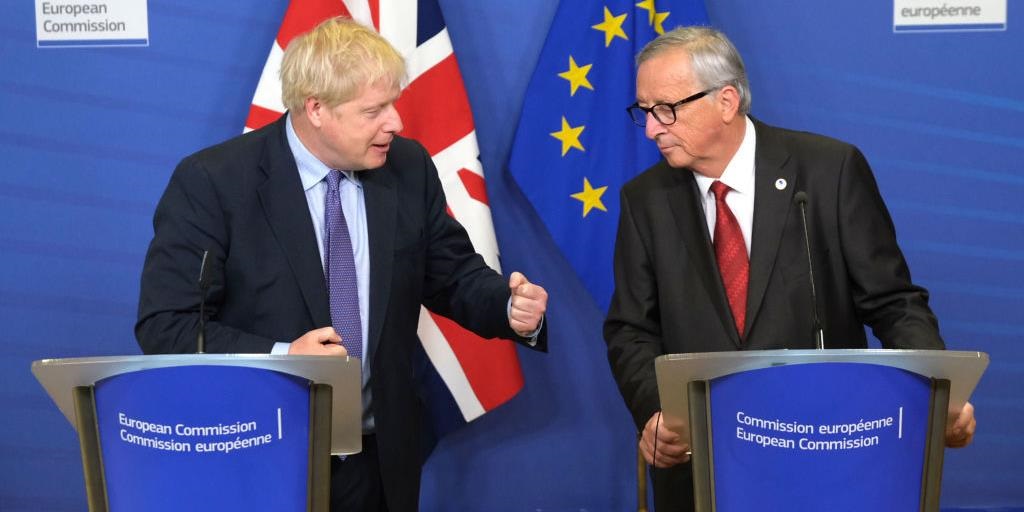
Brexit? New referendum? What's at stake in UK vote
Britain votes on Thursday in a crucial general election that will determine whether the country leaves the European Union next month or sets out a path to potentially reverse Brexit.
Here's an outline of what could happen:
Johnson wins
Prime Minister Boris Johnson called the election after disputes within his own Conservative party and with his Northern Irish allies over Brexit left him unable to command a majority in the House of Commons.
Opinion polls indicate the Tories will win enough MPs to get his divorce deal with the EU through parliament in time for Britain to leave on the next Brexit deadline, January 31.
This would help calm years of turmoil sparked by the 2016 Brexit referendum but is not the end of the story.
Nothing will immediately change thanks to a transition period intended to ease the shift to a new economic and security partnership with the EU.
Britain will have until December 31, 2020, to strike a new agreement to replace decades of integration with its closest trading partners.
Most independent experts believe there is not enough time, saying London will have to extend the transition period, but Johnson denies this.
Hung parliament
The main opposition Labour party is so far behind in opinion polls that few believe it can win outright, but it could secure enough seats to deprive the Conservatives of a majority.
Both Johnson and Labour leader Jeremy Corbyn would then likely race to try to show they can govern with the help of other smaller parties.
Johnson's predecessor, Theresa May, struck a deal to govern with the help of Northern Ireland's Democratic Unionist Party (DUP) when she missed out on a majority in 2017.
Johnson could try this again but the DUP is opposed to his EU divorce deal, which puts at risk his plan for a smooth Brexit next month.
Labour has said it would try to govern alone but the Scottish National Party (SNP) has indicated it could be willing to prop up a Corbyn-led government.
The price would be a new referendum on Scottish independence, after Scotland voted to stay part of the United Kingdom by 55% in 2014.
Second Brexit vote
Labour has promised to renegotiate Johnson's Brexit deal and put it to a referendum within six months of taking office.
Corbyn says he will stay neutral but other members of his top team have said they would campaign to stay in the EU.
The SNP opposes Brexit, as do the smaller Liberal Democrats and the tiny Welsh nationalist Plaid Cymru.
Polls currently show Britons remain divided over Brexit although the balance has shifted slightly in favour of staying in the EU compared to 2016, when "Leave" won 52% of the vote.